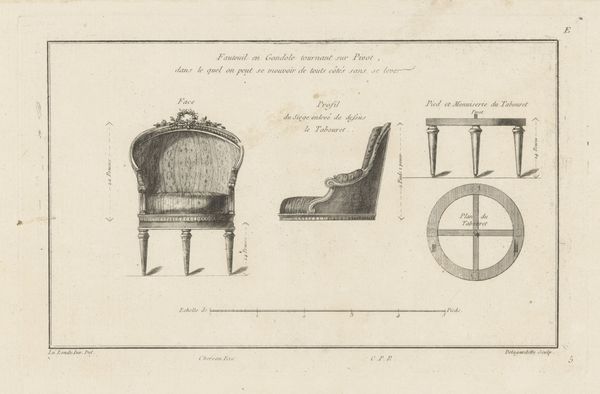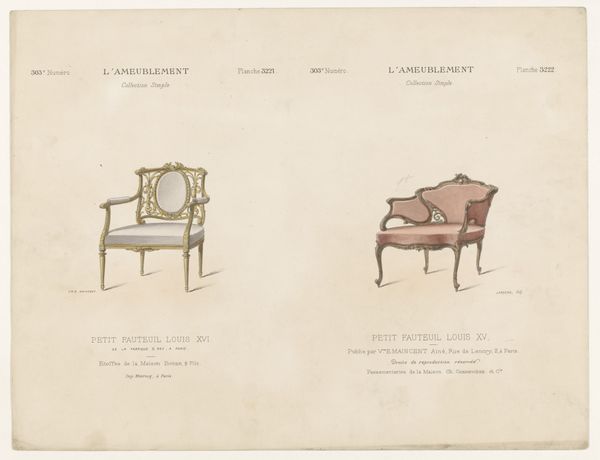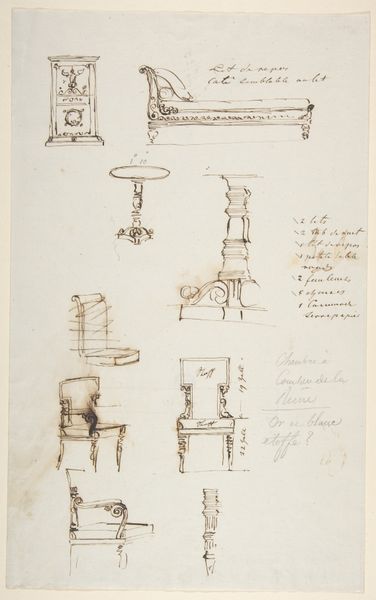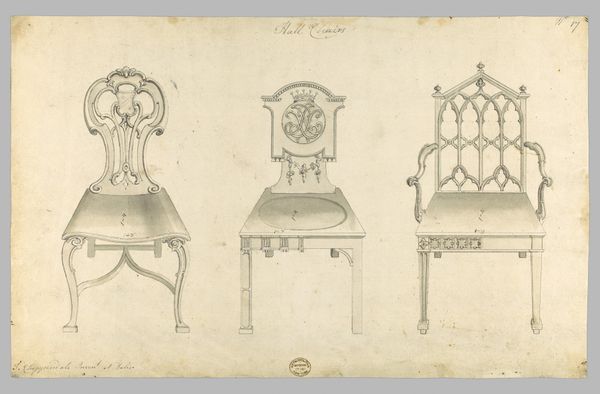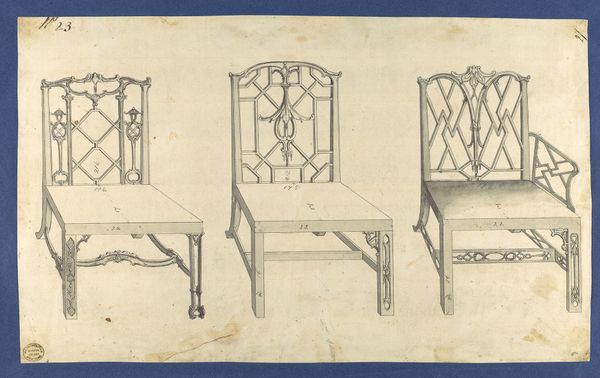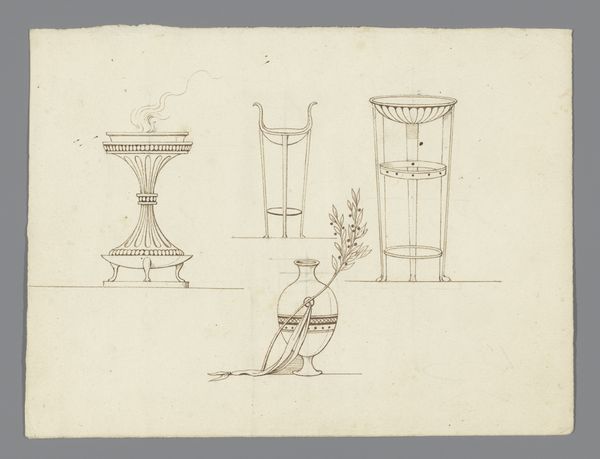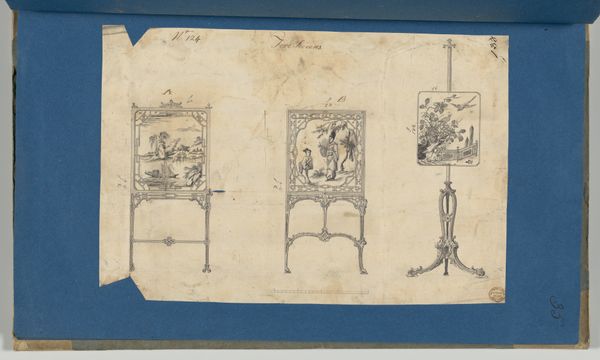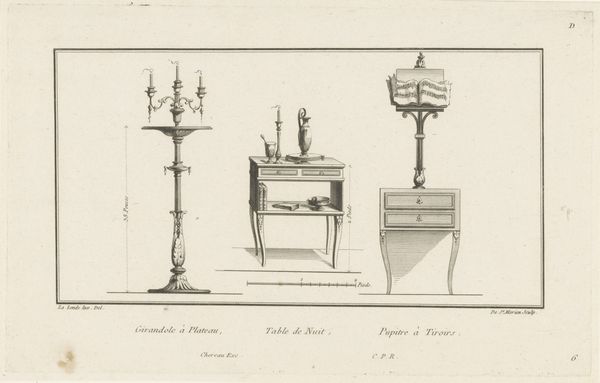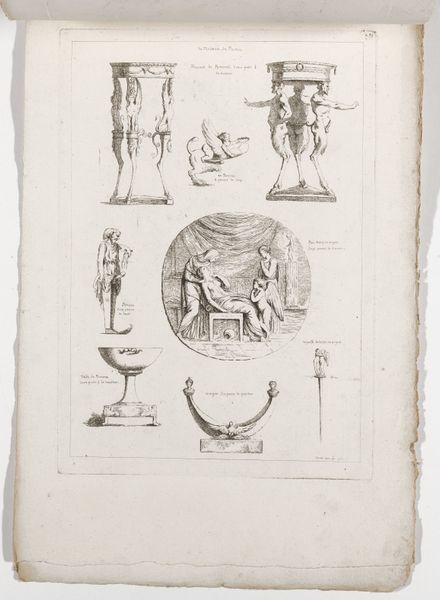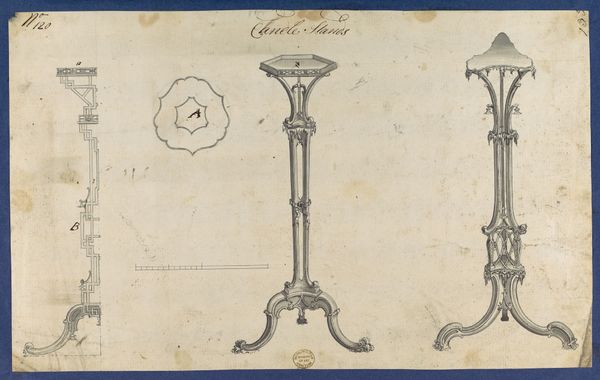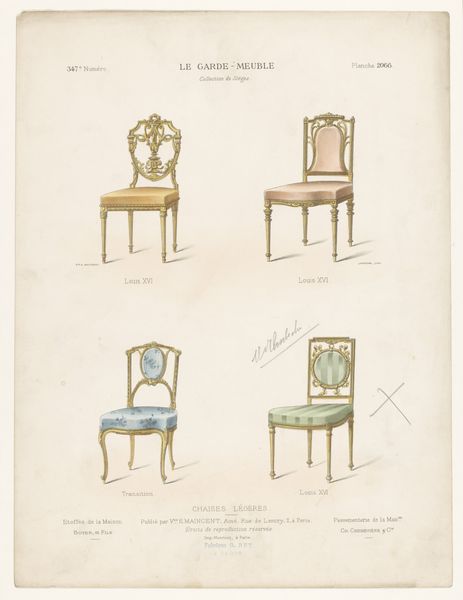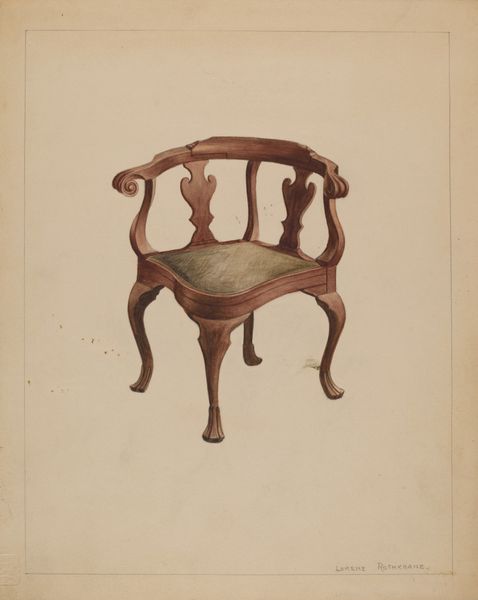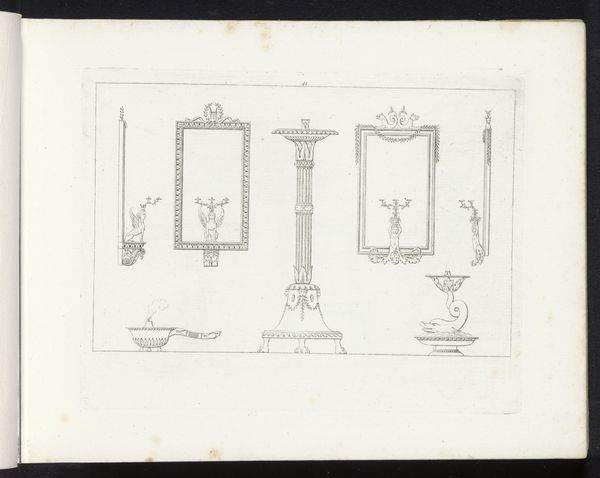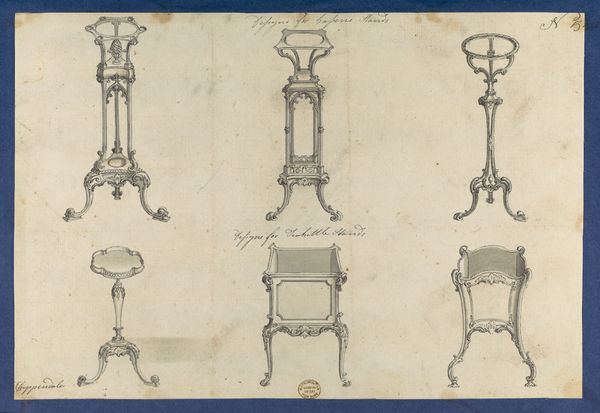
drawing, watercolor
#
drawing
#
neoclacissism
#
watercolor
#
watercolour illustration
#
watercolor
Dimensions: height 199 mm, width 310 mm
Copyright: Rijks Museum: Open Domain
Editor: This watercolor drawing, titled "Drie tafels en twee stoelen," was created around 1801-1802. It depicts various furniture pieces, and I’m immediately struck by the contrast between the delicate lines and the almost whimsical design of some of the legs. What stands out to you? Curator: I see a fascinating blend of functionality and symbolic weight. Consider the stylized legs of the tables and chairs—especially the sphinx-like supports on the one chair. What do they evoke in you? Editor: Well, they seem to suggest power and mystery, perhaps linking back to ancient Egyptian motifs? Curator: Precisely! And Neoclassicism, as an aesthetic, looked back to idealized visions of antiquity—Greece and Rome were major reference points, yes, but Egypt was sometimes thrown in for good measure, signifying a kind of timeless authority. Notice also the restrained color palette; what impression does that make? Editor: I find it quite elegant. The muted greens and browns feel very intentional, contributing to the classical mood, as if trying to avoid excessive visual interest. Curator: Good eye! And consider what this image *represents*—not just furniture, but status, taste, and cultural aspirations. This drawing showcases design, and its effect on memory. The symbolic animals act almost like memory triggers or 'mnemonics’ intended to create specific emotional associations within viewers. Editor: It’s like the artist is saying that furniture isn't just functional—it also communicates social identity. Thanks; I hadn’t thought about those classical figures as symbolic tools to communicate identity and power. Curator: And in this way the most mundane item has profound meaning. Thanks to your questions, I have a new appreciation for these subtle details.
Comments
No comments
Be the first to comment and join the conversation on the ultimate creative platform.
